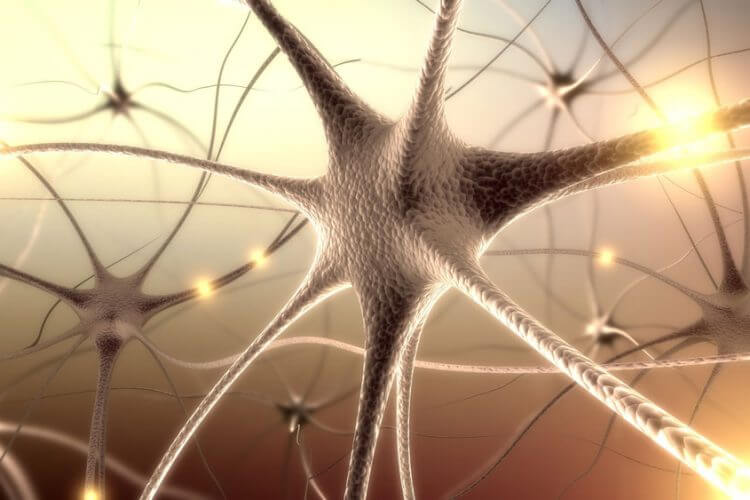Peripheral Neuropathy
What is peripheral neuropathy, the causes and symptoms?
What is Peripheral Neuropathy?
The peripheral nervous system is responsible for the communication between the central nervous system (brain and spinal cord) and the rest of the body. “Peripheral” refers to anything that is not the brain or the spinal cord. “Neuropathy” refers to nerves that are diseased, damaged or not functioning correctly. There are various terms that may be applied to neuropathies. Mononeuropathy means a single nerve is damaged. Polyneuropathy can be used to describe involvement or damage to many nerves.

Causes of Peripheral Neuropathy
There are many potential causes of peripheral neuropathy. The most commonly diagnosed causes are diabetes, chemotherapy and “idiopathic”. A diagnosis of idiopathic peripheral neuropathy is given if the doctor is not certain of the cause. In my experience, more than one factor often contributes to the condition.
Some of the most common causes include:
- Diabetes / Pre-Diabetes
- Poor Circulation
- Chemotherapy
- Trama or Surgery
- Spinal Stenosis / Spinal Arthritis
- Autoimmune
- Hormonal Imbalances
- Cancer
- Infections (viral or bacterial)
- Alcohol Abuse
- Liver/ Kidney Disease
- Nutritional Imbalances
- Several Medications/Pharmaceuticals
- Toxins
- Genetics
Causes of Peripheral Neuropathy
There are many potential causes of peripheral neuropathy. The most commonly diagnosed causes are diabetes, chemotherapy and “idiopathic”. A diagnosis of idiopathic peripheral neuropathy is given if the doctor is not certain of the cause. In my experience, more than one factor often contributes to the condition.
Some of the most common causes include:
- Diabetes / Pre-Diabetes
- Poor Circulation
- Chemotherapy
- Trama or Surgery
- Spinal Stenosis / Spinal Arthritis
- Autoimmune
- Hormonal Imbalances
- Cancer
- Infections (viral or bacterial)
- Alcohol Abuse
- Liver/ Kidney Disease
- Nutritional Imbalances
- Several Medications/Pharmaceuticals
- Toxins
- Genetics

Commonly Affected Areas
Three quarters of all cases are classified as, “length-dependent polyneuropathies”. Meaning, the symptoms start in the toes or fingers and progress up toward the knees or elbows.
In addition to the extremities, peripheral neuropathy can affect the torso, face, neck, internal organs like the lungs, kidneys, liver, stomach and intestines, as well as, the external organs like the skin, eyes, nose, ears and tongue.
These areas can include:
- Toes
- Feet
- Ankles
- Shins
- Knees
- Fingers
- Hands
- Wrists
- Arms

Common Symptoms
The most common type of peripheral neuropathy is considered progressive and continues to get worse over time. Occasional tingling can escalate into unrelenting stabbing pains. Numbness, which is often described as a “heavy”, “dead”, “leathery”, or the feeling that “they are not my own”, can spread from the toes or bottom of the feet, up to the knees. Instability can lead to poor balance and the increased risk of falling. Due to the fear of falling, heightened concentration can make walking an overly fatiguing experience. Neuropathy can also start or spread into the hands and arms, making dressing or grasping everyday items difficult. Sleep can be disrupted due to muscle cramps, burning or stabbing pains. Hypersensitivity can make walking, wearing shoes or even the weight of the bed sheets uncomfortable. Some neuropathy sufferers wear socks or gloves to bed year-round due to persistent cold sensations. Neuropathy can lead to muscle fatigue, weakness and muscle loss. Most commonly, sensory related symptoms precede muscle related symptoms.
Symptoms vary depending on the type of nerves that are damaged: sensory, motor or autonomic.
- Sensory nerves transmit information about what you feel; pain, pressure, light touch, temperature, proprioception (where feet or hands are in space… eg. balance).
- Motor nerves control the movement of your muscles.
- Autonomic nerves control organs regulated to breathing, digesting food, heart and gland functions.
Common symptoms include:
- Numbness – Unable to feel your hands or feet. Difficulty driving and loss of dexterity in fingers and toes.
- Tingling – Annoying tingling sensations that can be constant, or come and go.
- Electrical/Stabbing Pain – Over-active nerves shoot randomly and without warning.
- Burning – Commonly felt in the feet; burning/hot sensations make it uncomfortable to walk and can disrupt sleep.
- Poor Balance – Instability and fear of falling that can make it uncomfortable when walking in an open space.
Additional symptoms can include:
- Pins and Needles
- Loss of Dexterity
- Bunched-Up Sock Feeling
- Hurts to Walk
- Soles Feel too Thick or Thin
- Feeling of Tightness or Bands
- Shoes Uncomfortable
- Muscle Twitching
- Dropping Items
- Cannot Tell How Hard You Are Grasping




